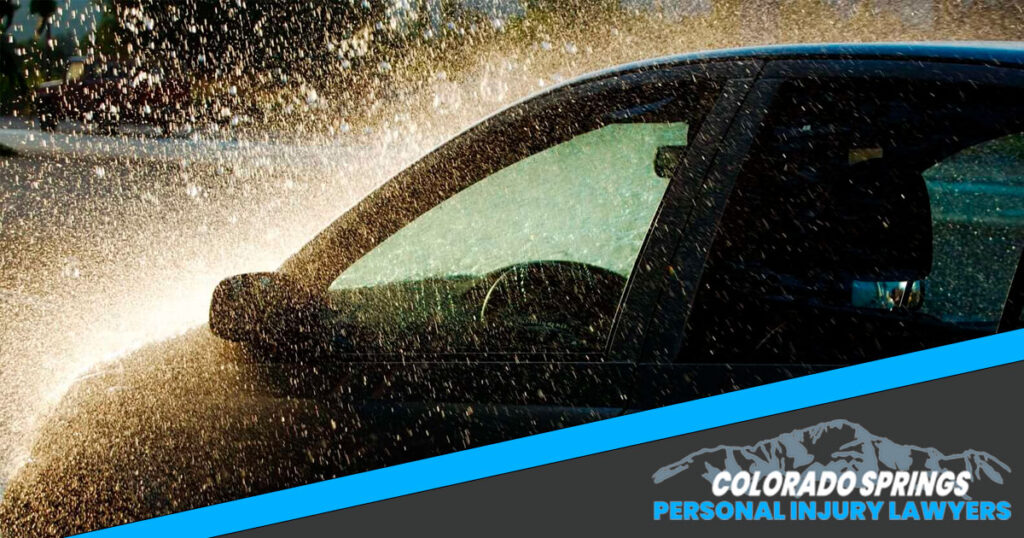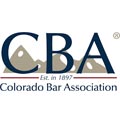In the aftermath of a weather-related auto accident, determining fault can be as unpredictable as Colorado’s weather itself. How does bad weather impact fault in Colorado Springs car accidents? Join us as we navigate through the legal landscape of weather-related collisions and discover if weather conditions hold any sway over fault in these tumultuous moments on the road.
What Factors Are Considered in Determining Fault in Car Accidents?
When it comes to determining fault in car accidents, several factors come into play. These factors include the adherence to general principles of road rules and regulations, the evaluation of driver behavior and actions leading up to the accident, and the consideration of specific laws and regulations in the region where the accident occurred. However, a crucial question arises: can bad weather conditions be a mitigating factor in assigning fault in car accidents?
Does Bad Weather In Colorado Springs Cause Car Accidents?
When it comes to auto accidents in bad weather, the conditions can certainly play a role. Snow and ice, as well as rain and fog, are common culprits that can make roads slippery and visibility poor, increasing the risk of accidents. According to the Federal Highway Administration, weather causes 21% of car accidents nationwide.
In Colorado Springs, weather-related accidents are not uncommon, with snowstorms and heavy rain contributing to a significant number of collisions each year. Drivers need to be extra cautious and adjust their driving behavior accordingly to avoid accidents in adverse weather conditions.
Six Types of Accidents Caused by Bad Weather in Colorado Springs:
1. Slippery Road Collisions:
Accidents resulting from slippery road conditions, such as snow or ice, can lead to vehicles losing traction and sliding into other cars or off the road.
2. Reduced Visibility Crashes:
In cases of heavy rain, fog, or snowstorms, reduced visibility can contribute to accidents as drivers have difficulty seeing road signs, other vehicles, or potential hazards.
3. Hydroplaning Incidents:
During heavy rainfall, vehicles may hydroplane on wet roads, causing them to lose control and potentially collide with other vehicles or objects.
4. Rear-End Collisions:
Poor weather conditions can result in decreased stopping distances, leading to an increased likelihood of rear-end collisions when drivers fail to brake in time due to slick roads or reduced visibility.
5. Multi-Vehicle Pileups:
Severe weather events like blizzards or hailstorms can create hazardous driving conditions and contribute to chain-reaction accidents involving multiple vehicles on highways and intersections.
6. Unexpected Lane Departures:
Drivers may inadvertently drift out of their lane during inclement weather conditions due to reduced grip on the road surface, resulting in sideswipes or collisions with other vehicles.
Can Bad Weather Negate Fault in Auto Accidents?
Weather conditions alone typically do not negate fault in an accident in Colorado. While poor weather conditions can contribute to accidents, drivers are still expected to adjust their driving behavior accordingly and maintain control of their vehicles. In most cases, drivers are responsible for taking precautions in adverse weather conditions and can still be held at fault if their actions or negligence directly lead to the accident, regardless of the weather conditions.
However, there are cases in which weather can be considered. A Colorado Springs car accident attorney with experience with weather-related accidents can take a look at the specifics of a case and see if there’s merit.
Snow Chain Laws and Regulations in Colorado Springs
Colorado State Patrol (CSP) enforces the importance of ensuring driver’s vehicles are properly equipped for winter weather conditions. Failure to do so can lead to tickets and being found at fault for a vehicular collision. Passenger vehicle operators must adhere to Traction Laws, mandating the usage of one of the following:
– 4-wheel drive or all-wheel drive with a minimum tread depth of 3/16 inch
– Tires displaying a mud and snow designation (M+S icon) with a minimum tread depth of 3/16 inch
– Winter tires featuring a mountain snowflake icon with a minimum tread depth of 3/16 inch
– Tires manufacturer-rated for all weather conditions with a minimum tread depth of 3/16 inch
– Chains or an approved alternative traction device
Motorists found lacking proper equipment during Traction Law or Chain Law enforcement could face fines exceeding $150, while those impeding traffic due to inadequate gear may be subject to fines surpassing $650. The Chain Law specifically applies to commercial vehicles, such as semi-trucks, necessitating the use of tire chains above designated weight thresholds.
How Does Comparative Negligence Affect Weather-Related Car Accidents In Colorado Springs
Comparative negligence laws come into play in weather-related car accidents in Colorado Springs by determining the percentage of fault assigned to each party involved in the collision. In cases where adverse weather conditions contribute to the accident, comparative negligence allows for a fair assessment of liability based on the actions and behaviors of all drivers. If it is determined that multiple parties share responsibility for the accident, comparative negligence laws help allocate fault proportionately, impacting the potential compensation each party may receive. Thus, in weather-related car accidents, comparative negligence ensures a balanced approach to assigning fault and determining legal accountability among all parties involved.
The Role of Insurance Companies in Weather-Related Accident Claims in Colorado Springs
In weather-related accident claims, insurance companies play a significant role in the resolution process. They look at fault by reviewing various factors, including road conditions, visibility, speed, and driver behavior at the time of the accident. An analysis is performed on how the weather may have contributed to the collision and whether drivers took appropriate precautions. Insurance adjusters analyze evidence such as police reports, witness statements, and photos from the scene to determine liability in weather-related accidents.
Insurers use of weather to avoid paying out
Insurance companies often employ various tactics to minimize payouts, such as disputing liability, undervaluing damages, or pressuring claimants to accept low settlements. They take advantage when communicating with their clients who don’t have legal representation. Therefore, individuals involved in weather-related accidents need to seek legal representation from a Colorado Springs car accident attorney. Legal resources ensure they receive fair compensation for their losses and protect their rights throughout the claims process.
Can An Insurance Company Deny A Claim In Colorado Springs If There Was Bad Weather?
Insurance companies in Colorado Springs can deny a claim based on various factors, including bad weather conditions. While weather-related accidents can complicate the claims process, insurance companies may deny a claim if they believe the policyholder’s actions or negligence contributed to the accident. Insurers typically assess the circumstances of the accident, evidence of fault, and compliance with policy terms before making claim decisions.
If the insurance company deems that the policyholder was at fault or did not adhere to policy requirements, such as maintaining safe driving practices in bad weather, they may deny the claim. Reviewing your insurance policy terms and seeking legal advice if your claim is denied is essential to understand your rights and explore options for appealing the decision.
10 Steps to Take if Involved in a Weather-Related Accident
If you find yourself in a weather-related accident, it is crucial to follow specific steps to protect yourself and ensure a smooth claims process.
1. Ensure your safety by moving to a safe location, away from traffic if possible.
2. Check yourself and others for injuries and seek medical attention if needed.
3. Call 911 to report the accident, especially if there are injuries or significant property damage.
4. Exchange contact, insurance information, and vehicle details with the other driver(s) involved.
5. Take photos of the accident scene, including vehicle damage, road conditions, and any visible injuries.
6. Obtain contact information from witnesses and ask for their statements if possible.
7. Notify your insurance company promptly to report the accident and initiate the claims process.
8. Document relevant details about the accident, including weather conditions and visibility at the time of the collision.
9. Follow up with medical treatment as necessary and keep records of all medical expenses related to the accident.
10. Consider seeking legal advice from a Colorado Springs car accident attorney to understand your rights, ensure fair compensation, and navigate any legal complexities resulting from the weather-related accident.
Working with a Colorado Springs Car Accident Attorney
Engaging the services of a Colorado Springs car accident attorney can provide numerous advantages in weather-related cases. Here are some of the ways these legal professionals make a difference in your case:
Investigation and Evidence Gathering
A Colorado Springs car accident attorney can conduct thorough investigations into the accident, taking weather conditions into account. They will collect and analyze relevant evidence, such as police reports and witness statements, to build a strong case and support the client’s claim.
Legal Representation and Advocacy
In bad-weather accident cases, a Colorado Springs car accident attorney can provide legal representation and navigate the complex legal proceedings involved. They will ensure compliance with all legal requirements and advocate on behalf of the client to establish fault and liability in the weather-related accident.
Negotiation and Compensation
Another crucial role of a Colorado Springs car accident attorney is negotiating with insurance companies to secure fair compensation for damages and injuries sustained in the accident. They will guide the client through the claims process, including settlement negotiations or court proceedings, to ensure they receive appropriate compensation.
Technical Expertise and Support
Colorado Springs car accident attorneys can leverage technical expertise by utilizing expert witnesses or accident reconstruction specialists to support the case with critical analysis and evidence. They also assist in obtaining necessary medical treatment and documenting injuries for insurance claims.
Communication and Coordination
Effective communication with all parties involved in the accident is vital, and car accident attorneys excel in this area. They handle interactions with other drivers, insurance adjusters, and legal representatives, ensuring clear communication on behalf of their clients while coordinating necessary actions to move the case forward successfully.
Contact A Colorado Springs Car Accident Attorney Today For a Free Consultation
Contact Battaglia, Ross, Dicus & McQuaid, P.A. today for a free consultation with a skilled Colorado Springs car accident attorney. Our legal team is highly experienced and dedicated professionals committed to providing exceptional legal representation to our clients. Don’t delay — get the legal help you need to protect your rights and seek the compensation you deserve. Get in touch now to discuss your case and explore your options.

















